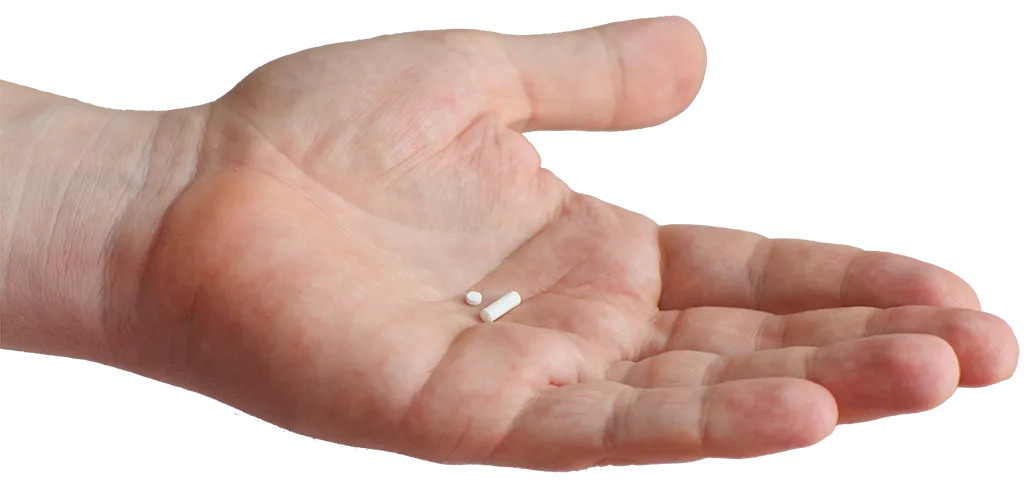EDUCATION

Bioidentical Hormones for Perimenopause and Menopause Symtoms
BIOIDENTICAL HORMONES FOR PERIMENOPAUSE SYMPTOMS:
HOW DO I KNOW WHEN TO START?
The reality is that the symptoms many women associate with menopause often start much earlier, years before ovulation and menstruation end. Often, they occur before women even start thinking about menopause. But recognizing the early signs of perimenopause and seeking timely treatment is important, as research suggests there is a critical window of opportunity for hormone replacement therapy to impact long-term health benefits. If you are experiencing symptoms, the best time to seek bioidentical hormones for perimenopause may be now.
WHAT TO EXPECT DURING PERIMENOPAUSE
Many women imagine menopause to be the result of a gradual and steady hormonal decline. But perimenopause is characterized by wide fluctuations of hormone levels that typically last for 4-8 years.
Your body likes being in a state of equilibrium. As estrogen and progesterone begin to drop, a feedback mechanism stimulates the ovaries to temporarily produce more. This pattern can produce unexpected and unpredictable symptoms until the ovaries have stopped producing eggs and menstruation stops. The body then settles into its new normal.
Doctors who treat women during perimenopause, also known as the menopausal transition, often refer to the "CORE FOUR" - the most common symptoms women experience in the years leading up to menopause. They are:
Vasomotor: Hot Flashes and night sweats are experienced by approximately 85% of women. These may start early during the perimenopausal period, with 55% of women experiencing hot flashes even before any menstrual irregularities. For about 25% of women, vasomotor symptoms persist for at least 5 years after menopause.
Vaginal: About 25% of women will experience vaginal dryness and painful intercourse during perimenopause. Unlike some other symptoms, these will not go away and may even get worse as time passes. Estrogen receptors in the bladder and urethra may also be affected by falling estrogen, resulting in urinary incontinence.
Insomnia: Difficulty falling asleep, frequent awakening, and inability to fall back to sleep are some of the most common sleep problems that affect women during perimenopause. Hot flashes and night sweats may be complicating factors, as is the co-occurrence of anxiety or depression.
Mood: Perimenopause is recognized as a time when women are at increased risk of both onset and recurrence of depression. Women have a 2-3 times greater risk of developing depression during perimenopause even without a previous history of depression, and often experience more severe symptoms. The perimenopausal period is also associated with an increase in anxiety.
While these are the most common, many other physical and emotional symptoms are possible.BIOIDENTICAL HORMONES FOR PERIMENOPAUSE SYMPTOMS
While the timing of HRT can be critical, the kind and quality of HRT may also play an important role. That’s why a growing number of women are choosing Bioidentical Hormones for perimenopause symptoms. These hormones are designed to match those produced by your body and used to eliminate the fluctuations that commonly trigger physical and emotional discomfort. With custom- compound Bioidentical Hormones, you can be assured that your treatment is tailored to your body’s needs.
Being aware of common perimenopause symptoms can help you to recognize them in your own life. Knowing that there are effective treatment options should guide you to seek relief. With the support and wisdom of an experienced hormone health specialist, Dr. Michael Ambrose, you can discuss your options and decide whether bioidentical hormones for perimenopause symptoms are the right choice for you.
If you want to know more about bioidentical hormones for perimenopause symptoms, Dr. Michael Ambrose at Performance Medical Clinic can offer the guidance you need. CONTACT US to learn more about our innovative treatment options.
GENERAL DISCLAIMER
These services have not been evaluated by the Food and Drug Administration. These products are not intended to diagnose, treat, cure or prevent any disease. The material on this website is provided for informational purposes only and is not medical advice. Always consult your physician before beginning any therapy program. Any designations or references to therapies are for marketing purposes only.







